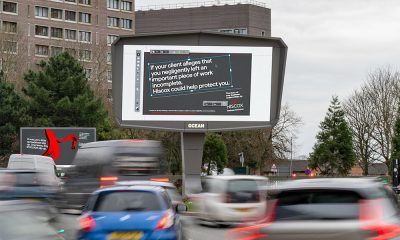Ad Policies & Regulations
High Court nods to MCGM’s hike in license fees for hoardings in Mumbai
After a legal suit on ever-increasing license fees that lasted for the last few years between Municipal Corporation of Greater Mumbai (MCGM) and hoarding owners of Mumbai, the Bombay High Court has finally taken the side of MCGM. The recent judgement has made tax raises justified.
 Mumbai High Court has put an end to the long legal battle between MCGM and the hoardings owners of Mumbai by offering a verdict that MCGM can raise the tax or license fees without citing any reason. MCGM has been hiking its license fees to be paid by hoarding owners in Mumbai for the last few years to the point of revising it at 80% a few years back and there has been a constant raise of at least 10% since then. Hoardings Owners Association of Mumbai and a few independent hoarding owners asked for an action against this rampant fee hike as according to them, there has been no commensurate investment to the betterment of industry in the city.
Mumbai High Court has put an end to the long legal battle between MCGM and the hoardings owners of Mumbai by offering a verdict that MCGM can raise the tax or license fees without citing any reason. MCGM has been hiking its license fees to be paid by hoarding owners in Mumbai for the last few years to the point of revising it at 80% a few years back and there has been a constant raise of at least 10% since then. Hoardings Owners Association of Mumbai and a few independent hoarding owners asked for an action against this rampant fee hike as according to them, there has been no commensurate investment to the betterment of industry in the city.
As per the judgement released lately, the tax raise should not be arithmetically proportionate to the investment. Therefore it can be an indicative scenario while other expenses, even if not made to the direct welfare of the industry, should be necessarily taken into account.
Indian Outdoor Advertizing Association (IOAA) supported the hoarding owners for this cause. Reacting to the judgement, Indrajit Sen of IOAA mentioned, “We wanted justice for the industry stakeholders. Large and sudden increases in taxes and fees cannot be passed on to customers and have to be absorbed. In addition, some sub-fees like Land Assessment Duty etc are, according to us, unnecessary and it adds to the inordinate burden on the industry. IOAA is in a process to put together a framework for a national policy where taxation policy is also being proposed to create a predictable financial scenario. Arbitrary and very stringent policy makes way for illegal practices. That is our main concern.
























